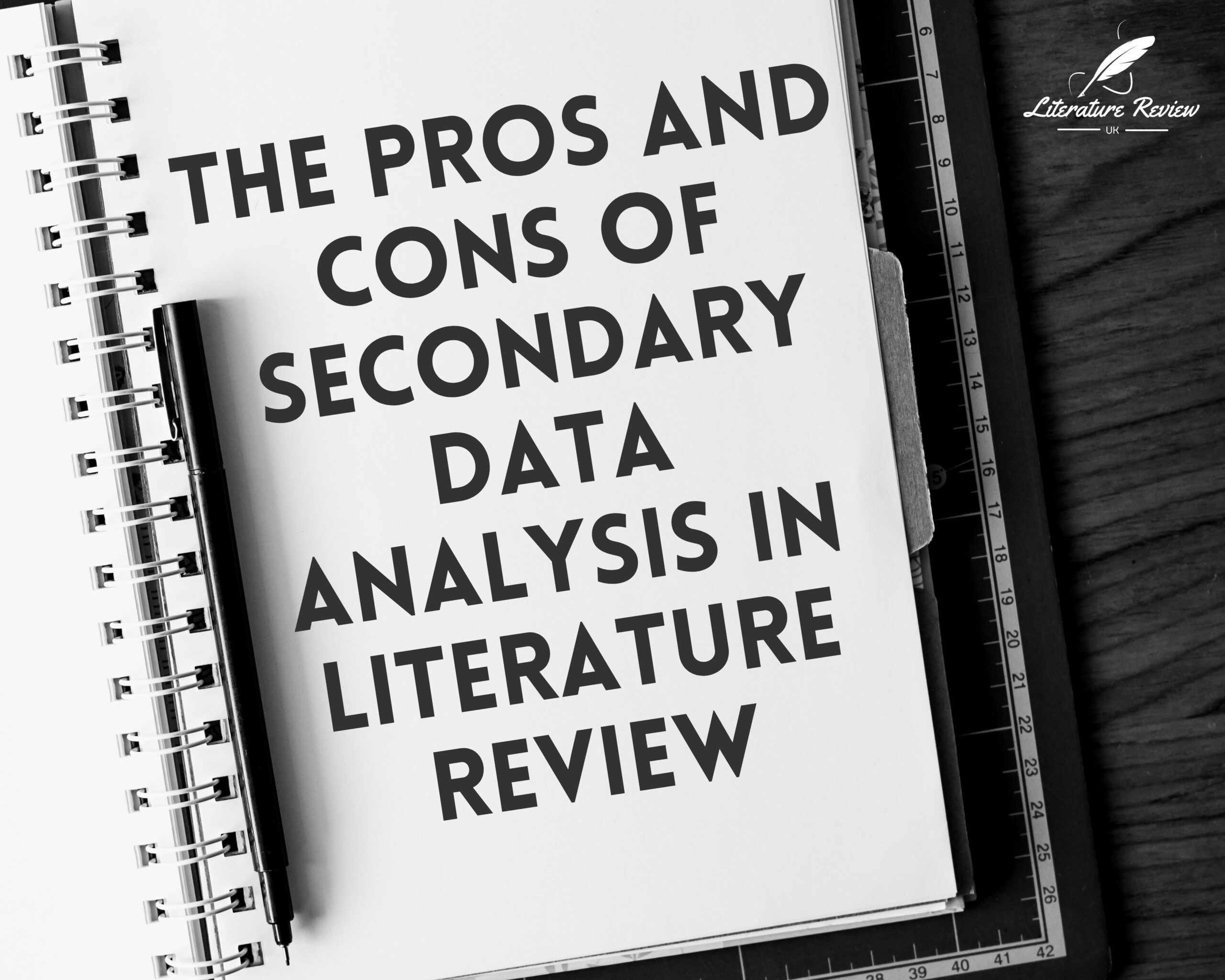
As a researcher, conducting a literature review is an important aspect of the research process. It involves gathering and analysing existing literature related to the research area. There are two main types of data sources for literature review: primary and secondary data. Primary data is original data collected by the researcher, while secondary data is data that has already been collected by someone else. In this blog, we will discuss the pros and cons of secondary data analysis in a literature review, including factors to consider for ensuring data quality, advantages and challenges.
Introduction to Secondary Data Analysis
Secondary data analysis is the process of analysing existing data collected by someone else for a purpose other than the researcher’s current project. It involves reviewing and synthesising published or unpublished data from various sources such as censuses, archives, government reports, surveys and databases. The main purpose of secondary data analysis is to provide a broader understanding of the research area, identify gaps in the existing literature and create new research questions.
Secondary data analysis can be a cost-effective and time-efficient way to conduct research, especially when primary data collection is not possible.
Considerations for Ensuring Data Quality in Secondary Data Analysis
There are various factors that researchers should consider for ensuring data quality in secondary data analysis. As the researcher is not the one who collected the data that they will be using, it is important to become familiar with the data set. Key questions to help assess data quality include:
- What was the original purpose behind the publishing of data? What are the main differences between the original study’s objectives and the present study’s measurement goals?
- What is the source of information? What are the credentials of the source? What is the potential level of bias? Is the material well-referenced?
- Is the information up-to-date or relevant to the current situation?
- Is the general public or researchers the intended audience?
- To what level is the data disaggregated?
- How precisely (confidence intervals) are the data representative of which population? Has the document received official validation? Is the community in consensus about the document’s quality?
The degree of disaggregation is especially crucial when comparing data from several sources. The degree of data disaggregation typically varies across or within political and geographic units. To ensure comparability after primary data collection, researchers should keep in mind that secondary data should be collected at the lowest level of disaggregation possible.
Advantages of Secondary Data Analysis in Literature Review
There are several advantages of using secondary data analysis in literature review.
- Secondary data analysis saves time and resources. Conducting primary data collection can be time-consuming and expensive. Secondary data analysis can provide a rich source of data that can be easily accessed and analysed. It can also be more cost-effective than conducting primary data collection.
- Another advantage of secondary data analysis is that it provides a broader perspective on the research area. Secondary data analysis can provide a more comprehensive view of the research area by including data from multiple sources. This can help researchers to identify gaps in the existing literature and generate new research questions.
- Secondary data analysis allows the researchers to perform longitudinal analysis which means the studies are performed spanning over a large period of time. This can help them determine different trends and allow them to compare data over time as well.
- Secondary data analysis can provide a more diverse set of data than primary data collection. Secondary data can be collected from different sources, such as archives, government reports, surveys, and databases. This can provide a more diverse set of data that can be used to answer research questions.
Limitations of Secondary Data Analysis in Literature Review
While there are advantages to using secondary data analysis, there are also several challenges that researchers need to consider.
- The quality of the data: The quality of the data used in secondary data analysis can vary widely, depending on the source of the data and the methods used to collect it. Researchers need to carefully evaluate the quality of the data before using it in their literature review.
- The relevance of the data: The data used in secondary data analysis may not be directly relevant to the research question being addressed. Researchers need to carefully evaluate the relevance of the data before using it in their literature review.
- Secondary data may be subject to bias and errors. Researchers need to carefully evaluate and analyse the data to make sure it is not biased.
- Secondary data is collected in the past which means it might be out-of-date. This issue can be crucial in many different situations.
Tips for Navigating the Challenges of Secondary Data Analysis
To navigate the challenges of secondary data analysis, researchers can follow several tips.
- Researchers need to carefully evaluate the quality of the data. This can be done by reviewing the methods used to collect the data, the sample size, and the reliability and validity of the data. If the quality of the data is not adequate, researchers should consider using a different data source.
- Researchers need to carefully evaluate the relevance of the data. This can be done by reviewing the research question and the data source to determine if the data is directly relevant to the research question. If the data is not directly relevant, researchers should consider using a different data source.
- Researchers need to carefully evaluate the level of detail provided by the secondary data. This can be done by reviewing the data source to determine if the data provides the level of detail needed to answer the research question. If the data does not provide the level of detail needed, researchers should consider using a different data source.
Conclusion
In conclusion, secondary data analysis can be a useful tool for conducting literature reviews. It can provide a cost-effective and time-efficient way to conduct research and can provide a broader perspective on the research area. However, researchers need to carefully evaluate the quality, relevance, and level of detail provided by the secondary data before using it in their literature review. By following the tips outlined in this blog, researchers can navigate the challenges of secondary data analysis and make informed decisions about its use in their literature review.




